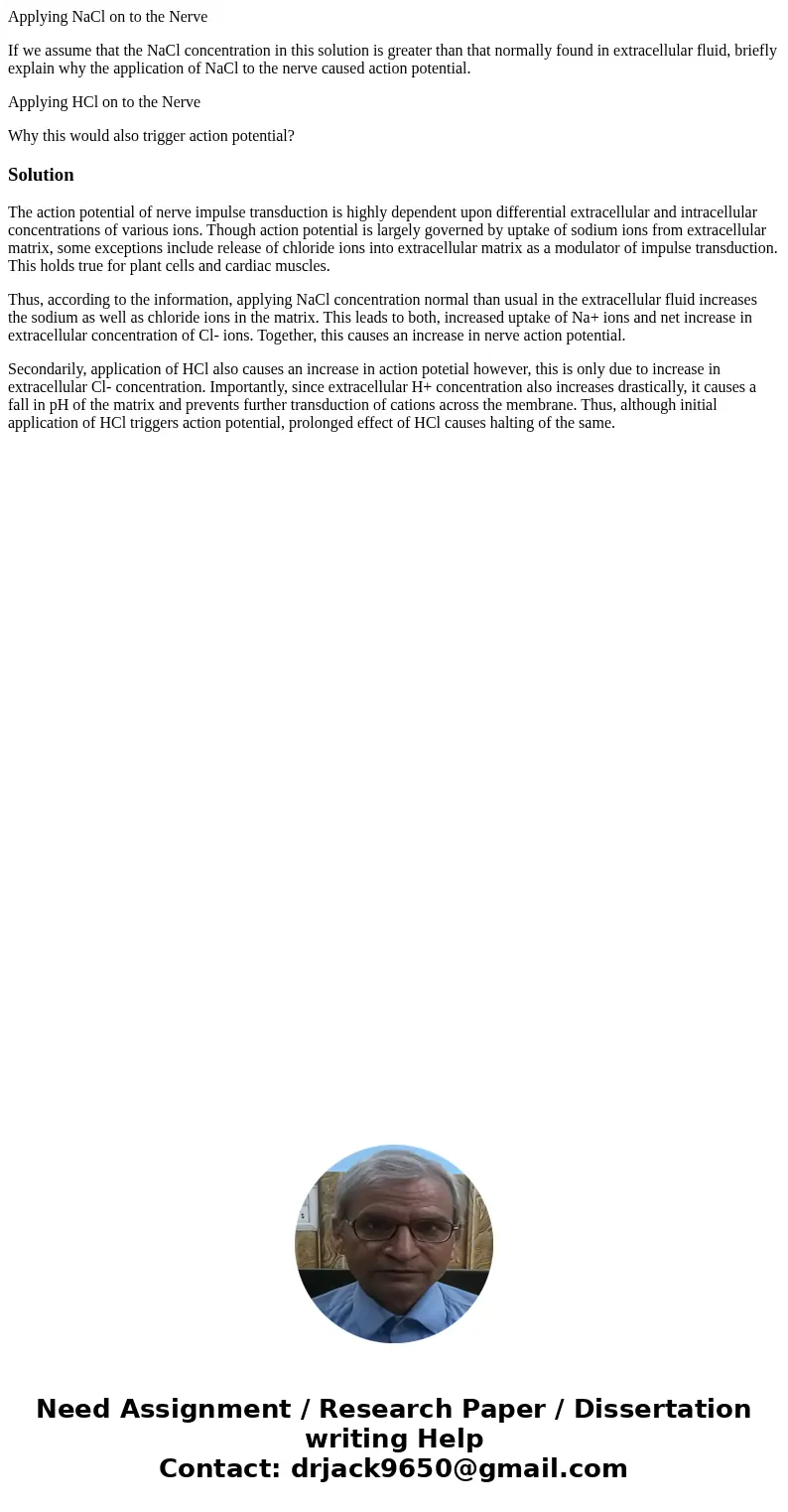Applying NaCl on to the Nerve If we assume that the NaCl con
Applying NaCl on to the Nerve
If we assume that the NaCl concentration in this solution is greater than that normally found in extracellular fluid, briefly explain why the application of NaCl to the nerve caused action potential.
Applying HCl on to the Nerve
Why this would also trigger action potential?
Solution
The action potential of nerve impulse transduction is highly dependent upon differential extracellular and intracellular concentrations of various ions. Though action potential is largely governed by uptake of sodium ions from extracellular matrix, some exceptions include release of chloride ions into extracellular matrix as a modulator of impulse transduction. This holds true for plant cells and cardiac muscles.
Thus, according to the information, applying NaCl concentration normal than usual in the extracellular fluid increases the sodium as well as chloride ions in the matrix. This leads to both, increased uptake of Na+ ions and net increase in extracellular concentration of Cl- ions. Together, this causes an increase in nerve action potential.
Secondarily, application of HCl also causes an increase in action potetial however, this is only due to increase in extracellular Cl- concentration. Importantly, since extracellular H+ concentration also increases drastically, it causes a fall in pH of the matrix and prevents further transduction of cations across the membrane. Thus, although initial application of HCl triggers action potential, prolonged effect of HCl causes halting of the same.

 Homework Sourse
Homework Sourse